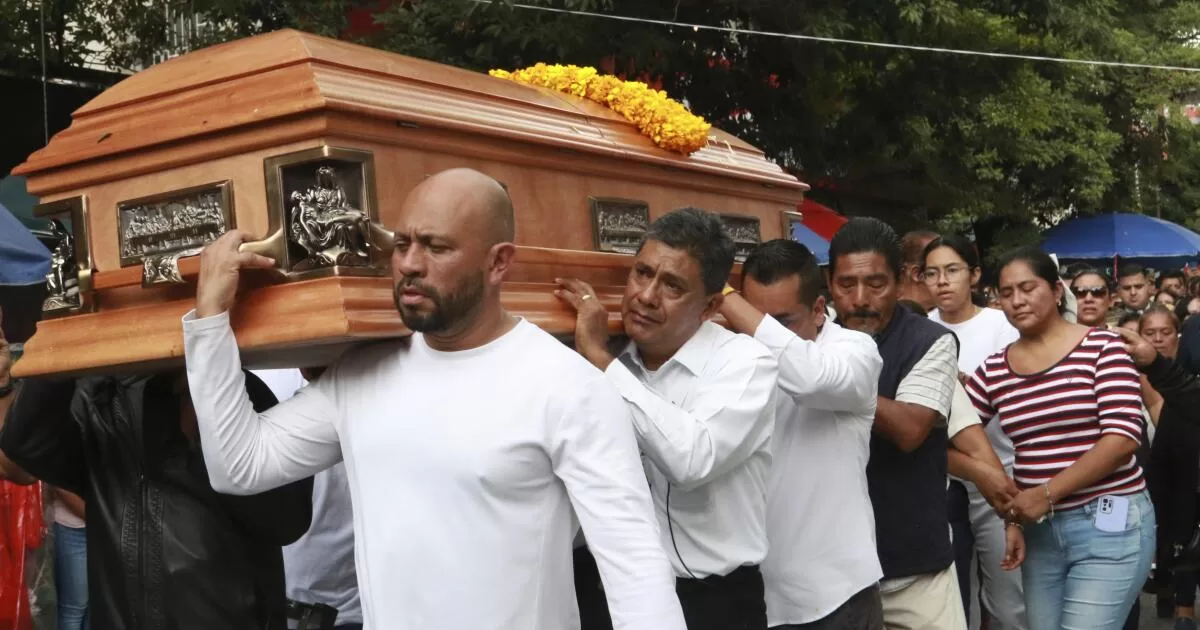Rejecting a renewed “war” against drug-traffickers, Mexican President Claudia Sheinbaum on Tuesday unveiled her strategy to battle organized crime in a nation where each day brings word of new assassinations, gang wars, massacres and other carnage.
“The war against el narco will not return,” Sheinbaum, who took office last week, said in her daily press conference.
Instead, she outlined a four-point strategy that emphasized intelligence-gathering, troop deployment, improved federal-state coordination and providing opportunities to dissuade impoverished young people from joining organized crime — which is among Mexico’s major employers.
A centerpiece of the plan is doubling down on the often-criticized “hugs not bullets” strategy of Sheinbaum’s predecessor and mentor, former President Andrés Manuel López Obrador.
During his six-year term, López Obrador de-emphasized direct conflict with cartels and instead bolstered scholarships, job-training, economic aid and other initiatives in a bid to provide alternate career paths for at-risk youth.
The government views “as a priority … reducing poverty, closing gaps of inequality and generating opportunities so that the young have access to a better quality of life,” said Omar García Harfuch, Sheinbaum’s head of security.
Critics called Sheinbaum’s plan vague and unlikely to deter violence in a nation where heavily armed gangs control vast swaths of territory and have expanded from cross-border drug-smuggling to rackets such as extortion, kidnapping, migrant-smuggling and plundering of national resources.
“They tell us about a program of security, but how they are going to do it isn’t clear,” said Erubiel Tirado, a security expert at the Iberoamerican University in Mexico City. “The strategy is limited. … It’s a collection of projected power points.”
Most details of the new security strategy had already been leaked or sketched in broad terms by Sheinbaum, who was credited with reducing Mexico City’s crime rate during her previous tenure as mayor.
But curbing criminality on a national level represents a much greater challenge in a country where organized crime is more deeply embedded than in the capital.
Even as the president spoke, mourners chanting “¡Justicia! ¡Justicia!” marched through the streets of Chilpancingo, the capital of violence-plagued Guerrero state, during the funeral cortege for former Mayor Alejandro Arcos, who was assassinated last weekend, less than a week after taking office. Arcos’ severed head was placed on the roof of his white pickup truck, parked on a public street. Authorities have not named any suspects.
Meanwhile, a month of intra-cartel violence has nearly paralyzed Culiacán, capital of Sinaloa state and base of the Sinaloa cartel, the nation’s largest.
How to tackle the violence and improve security nationwide is the most pressing problem that López Obrador left Sheinbaum.
López Obrador had already ditched the “war” on cartels approach — a now discredited militarized campaign launched almost two decades ago that cost tens of thousands of lives but did little to blunt the power of organized crime. But he also greatly expanded the role of the Mexican Armed Forces, which now command the National Guard, formerly under civilian control.
The new president’s plan also relies heavily on the military, though experts say troops are ill-equipped for a law-enforcement role.
“The operation of public security in this country lies with the Army, the Navy and the National Guard — everything is militarized,” said Tirado. “That’s a problem. The strategy is limited.”
Last week, soldiers fired on suspected smuggling vehicles ferrying U.S.-bound migrants in Mexico’s southern Chiapas state, leaving six dead and at least 10 wounded.
During his time in office, critics say López Obrador did little to professionalize Mexico’s municipal and state police forces, many of which have been accused of widespread corruption. In her comments on Tuesday, Sheinbaum didn’t address the issue of reforming local police, perplexing many observers.
“If we don’t invest in the police, it’s going to be very difficult to resolve the crisis of security,” Clemente Castañeda, an opposition senator, told Mexico’s Radio Formula.
Polls show that many Mexicans believe that violence is spiraling out of control. The government says homicide numbers have dropped in recent years, but Mexico’s rate is still far higher than in the United States.
Mexico had 26 homicides per 100,000 people in 2017, then the rate spiked to 29 between 2018 to 2020, according to government statistics. Last year, the government reported the rate was 24 homicides per 100,000. That is still more than four times the 2023 rate of 5.7 murders for every 100,000 people in the United States.
However, López Obrador’s presidency also saw a record of more than 50,000 “disappeared” — mostly kidnapped victims presumed dead, often buried in clandestine graves.
Special correspondent Cecilia Sánchez Vidal contributed to this report.
